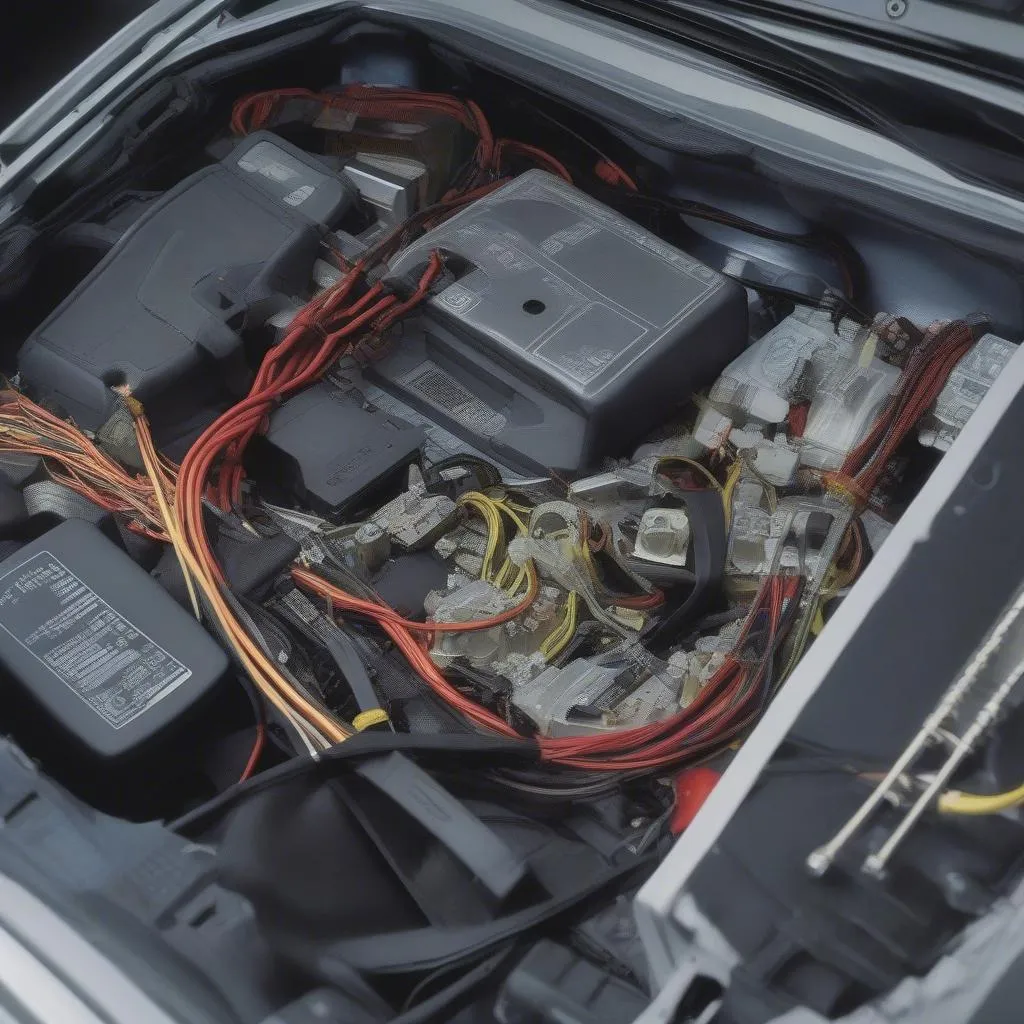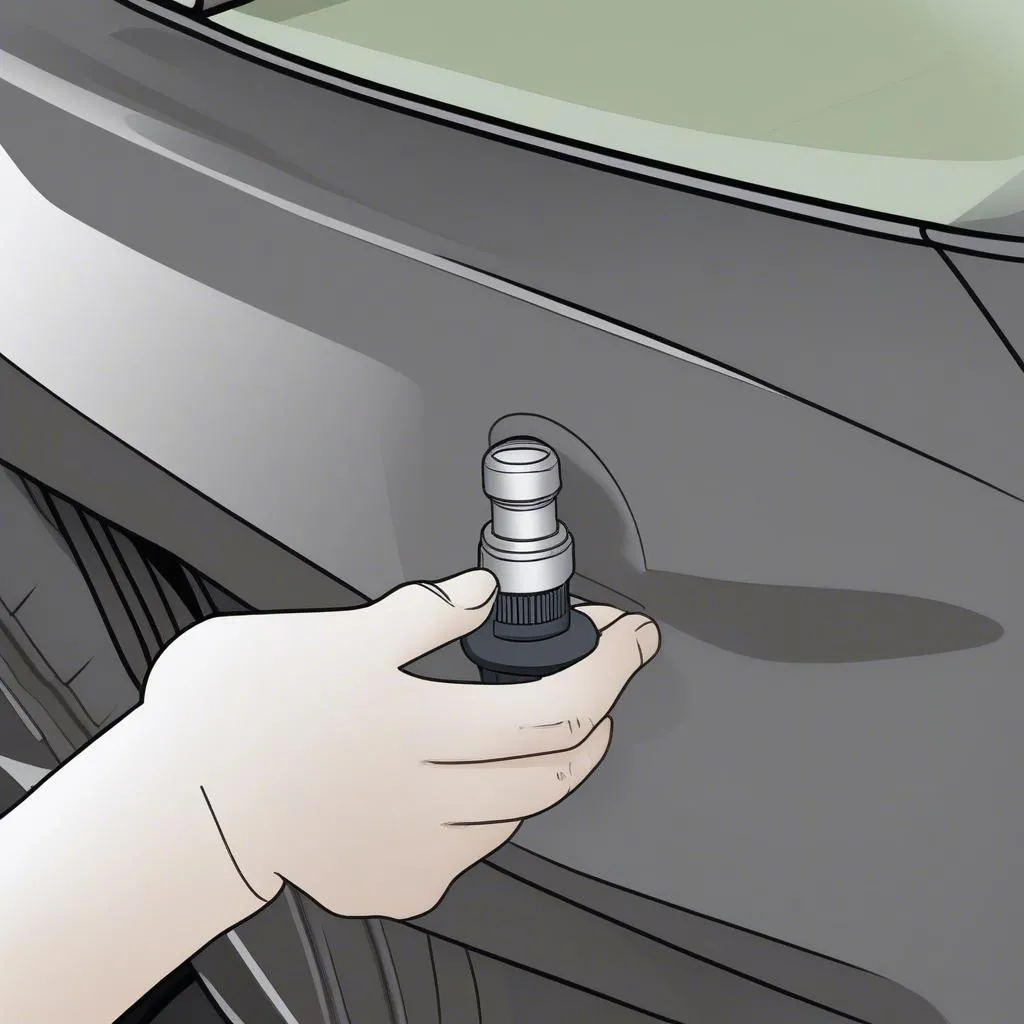Seeing a brake warning light illuminate on your BMW’s dashboard can be unnerving. While the desire to “disable” the warning might be tempting, it’s crucial to remember that this light signals a potential issue with your braking system – a critical safety component of your vehicle. Instead of looking for quick fixes, understanding the underlying cause and taking appropriate action is paramount.
This article delves into the common reasons behind a BMW brake warning light, guiding you on how to diagnose and address the issue responsibly.
Deciphering Your BMW Brake Warning Light
The first step to resolving the issue is understanding what your car is trying to tell you. BMWs utilize a few distinct brake warning lights:
- Red Brake Warning Light: This light typically signals one of two things: either your parking brake is engaged or there’s a significant problem within your braking system, such as low brake fluid.
- Yellow ABS Light: This warning indicates a problem with your Anti-lock Braking System (ABS). While your regular brakes might still function, the ABS, designed to prevent wheel lockup during hard braking, may not be operational.
- Brake Pad Wear Sensor Light: This light, often appearing as a circle with dashed lines around it, indicates your brake pads have worn down and require replacement.
Common Causes of a BMW Brake Warning Light
Several issues can trigger a brake warning light in your BMW:
- Worn Brake Pads: This is the most common culprit. As your brake pads wear down, the sensor sends a signal, illuminating the warning light.
- Low Brake Fluid: Brake fluid is the lifeblood of your braking system. A leak in the system can lead to low fluid levels, compromising braking performance.
- Faulty Brake Sensors: Like any sensor, your brake sensors can malfunction, triggering a false warning light.
- ABS Module Issues: The ABS module can experience electrical or hydraulic faults, leading to the illumination of the ABS warning light.
- Hydraulic System Problems: Air in the brake lines, a failing master cylinder, or other hydraulic issues can also trigger brake warnings.
 Worn Brake Pads on a BMW
Worn Brake Pads on a BMW
What to Do When Your BMW Brake Warning Light Turns On
When your BMW displays a brake warning light, it’s crucial to act quickly but calmly:
- Safely Pull Over: Find a safe location to park your vehicle. Driving with a potential brake issue poses a significant risk.
- Check Your Parking Brake: Ensure your parking brake is fully disengaged. It’s surprising how often this simple oversight causes the warning light.
- Inspect Brake Fluid Level: If comfortable, carefully check your brake fluid level. Refer to your owner’s manual for the location of the reservoir and instructions.
- Avoid Driving Further: If you suspect a serious issue, such as low brake fluid or a faulty component, do not attempt to drive the car.
- Seek Professional Help: Contact a qualified mechanic specializing in BMWs to diagnose and repair the problem.
BMW Brake Warning Disable: Why it’s Never the Answer
While searching for “BMW brake warning disable” might seem like a quick solution, attempting to disable the warning light without addressing the underlying issue is extremely dangerous. Disabling the warning system won’t magically fix your brakes; it simply masks a potentially life-threatening problem. Remember, your brake system is your car’s most critical safety feature. Ignoring warning signs can lead to brake failure and put you and others on the road at risk.
Getting Your BMW Back on the Road Safely
“When it comes to your BMW’s brakes, err on the side of caution,” advises master BMW technician, Peter Schmidt. “A seemingly minor issue can quickly escalate into a major problem if ignored. Regular maintenance and timely repairs are key to ensuring optimal braking performance and your safety on the road.”
By understanding the warning signs and taking prompt action, you can address brake issues before they escalate into dangerous situations. Remember, a well-maintained BMW is a safe BMW.
FAQ
1. Can I drive my BMW with the brake warning light on?
It depends. If the light is due to a simple issue like a slightly engaged parking brake, you can likely address it quickly. However, if it signals a serious problem like low brake fluid, continuing to drive is extremely dangerous.
2. How often should I get my BMW’s brakes checked?
BMW recommends a brake inspection every 10,000 miles or once a year, whichever comes first. However, driving habits, road conditions, and other factors can influence the wear and tear on your brakes.
3. How much does it cost to fix a BMW brake warning light issue?
The cost can vary widely depending on the problem’s root cause. A simple brake pad replacement will be significantly cheaper than repairing a faulty ABS module.
4. Can I fix a BMW brake warning light issue myself?
While some car maintenance tasks are suitable for DIY enthusiasts, brake system repairs are best left to qualified mechanics, especially with a sophisticated vehicle like a BMW.
5. What should I do if my BMW brake warning light comes on intermittently?
Even if the light is intermittent, it still warrants attention from a qualified mechanic. Intermittent issues can be challenging to diagnose but are often signs of a developing problem.


